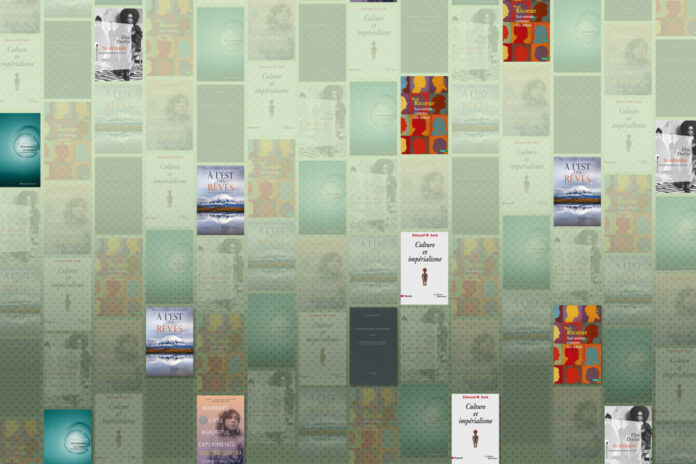She deconstructs her subjects of reflection as she deconstructs the soul of her readers.
“The work of anthropologist Nastassja Martin embraces major collective issues from the most intimate experience, that of the altered body,” explains Frédérique Bernier. In East of Dreams. Even responses to systemic crises, Martin describes the future of an indigenous Even family, a nomadic people, having decided to resettle, after the fall of the Soviet regime, in the wild forest of Kamchatka. The collective reinvents a way of life that is both old, because it draws on ancestral knowledge, and new, because it emanates from the political, economic and environmental upheavals in progress. It becomes this laboratory from which leads arise to shape this transformed relationship to the living that is our future. »
He was at the origin of the Quebec Conservative revival, but was more moderate than some of his students (Mathieu Bock-Côté at their head).
“Individuals live their mutual relationships through values such as duty, care, respect, etc., emphasizes Jacques Beauchemin. But is society absent from what seems to be only about one-to-one relationships? Oneself as another offers an answer. Ricœur writes that the essence of ethics is “the desire to live well with and for others in just institutions.” It is therefore a question of articulating the ethical relationship that is established between individuals with the role of sanction played by social institutions. “Just institutions” are essential in this approach: it is through them that the intersubjective relationship can be projected into a collective ethic. »
Author and teacher, he is currently the best candidate to become the Serge Bouchard of tomorrow.
“Reading Anders: one of the major events in my life as a writer,” says Mathieu Bélisle. In this intellectual, the euphoria aroused by modern advances gives way to a worried lucidity: technological developments place humanity before an unprecedented possibility, that of its own disappearance. A ferocious critic of fascism, Anders wonders if the advent of the leisure society, the flagship promise of capitalism, does not hide a desire for enslavement, if “free” time is not filled with disguised forms of work . Situated between literature and philosophy, his work refuses change less than it questions it, pleading for the world not to change without us. »
It reflects on mixed identities and their promises of novelty for Quebec.
“Hartman explores the promise that the archive of violence whispers – the promises whose texture is revealed when the archives of violence are exhausted, at the end of their capture. Philadelphia, New York, the turn of the 20th century and young black women fabricating what might otherwise be through oppression. From an impressive archival body of work, Hartman writes interruption, writes in interruption, with it: those radical, erotic, ordinary imaginings and practices. On the corner of a street, in a room, at the cabaret. What cannot be told is told in beauty. »
She put an end to the debate on cultural appropriation in Quebec in her book Baldwin, Styron et moi.
“Edward W. Said, a great Palestinian-American intellectual, rereads here the classics of Western literature from his own position as a ‘frontier’, but without forgetting the context in which they were written,” says Melikah Abdelmoumen. It is not a question of denying that in their own way, in their time, these authors and autrices contributed to the advent of a more just world, but of considering with a conscious look at imperialism and its effects their way of thinking about their world, of inhabiting it and writing about it as beings that are both exceptional, and indeed of their time, of their place. »
He thinks and lives in cultivated elegance, as a vision of the world in its own right.
“With ‘resonance’, Hartmut Rosa offers a new concept to remedy the ‘acceleration’ that characterizes modern society, explains Mustapha Fahmi. Speed isn’t necessarily bad; it becomes so when it leads to alienation. When our relationship to the people and things that matter to us loses its meaning, we plunge into alienation, even depression. Resonance is a way of entering into a new relationship to the world. To achieve this, we must return to the world its otherness, its strangeness and its unavailability. A world where everything looks the same, where everything is familiar and where everything is available is a world where resonance is an impossibility. »
She probes the intersections between freedom and power, in the marginal discourses of today.
“Often, when the conversation gets stuck or a conflict escalates, I go back to Elsa Dorlin’s essay Defend yourself,” says Valérie Lefebvre-Faucher. She helps me think. In this book, she makes a history of violence that highlights unequal access to self-defense. It’s breathtaking. It shows that we are taught to accept the violence of the dominant and to fear that of the dominated. She reflects on the imperative to “protect” as a device of power, and also on fear, which is not always recognized. A valuable book for anyone interested in justice and peace. »















